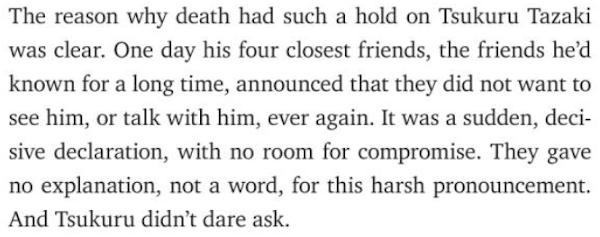A new niece; the “little house” books; the Hardy boys
The time has come to salute our new niece, Belladonna “Bella” Jean Louise. She was born to Brianna – who now goes by “Atticus” (“Atti”) – and to “Atti’s” partner, “Ike.”
Karin went to Michigan yesterday and visited the child and her parents.
♦ ♦ ♦ ♦ ♦
Samuel pulled Laura Ingalls Wilder’s books off the shelf and spread them out across the floor. Which of them do you think caught his attention? That’s right: Farmer Boy. The only one in the series about little Almanzo Wilder. The only one about a boy.
The only one I’ve read, as it happens.
Karin tells me that when she was a little girl, she read all of the series *except* Farmer Boy. “That one is dumb,” her mom advised her.
♦ ♦ ♦ ♦ ♦
I had the opposite limitation. I tried, when I was younger, to read some Nancy Drew books. I failed. But I succeeded in devouring dozens of Hardy Boys mysteries.
Now, after some thirty years, I’m rereading one of my old favorites: While the Clock Ticked (the eleventh novel in the series). Samuel and Daniel will be reading The Hardy Boys before long, I expect, and I’d like to be conversant in that literature.
The pacing is breakneck. There’s an amusing scene in which Frank and Joe attend a party with their girlfriends for all of five minutes before they rush off again to pursue a lead.
The police are implausibly nice. They’d like nothing better than to share information with the teenaged sleuths. Frank and Joe’s friend group ticks the important boxes, race-wise. In just a couple of pages, the Italian-American “chum,” the Jewish-American “chum,” and the Irish-American “chum” all are introduced. (Introduced, but never developed as characters.) Nowadays, other races than these are the beneficiaries of token inclusion; but a similar diversity principle seems to have guided the great mercenary children’s writings of 1932.
Then, of course, there’s Chet Morton, a rounder character in more ways than one. The chums go hiking in the woods, and Chet keeps pleading with them to stop so they can all eat their sandwiches. This is where the book provides character development and comical relief.
♦ ♦ ♦ ♦ ♦
Back to Laura Ingalls. I picked up Little House in the Big Woods, also published in 1932, and read the first chapter. Its prose is plain but descriptively exquisite; I wouldn’t be surprised if it were a direct influence upon that of Nobel winner Alice Munro. (I’m especially reminded of her story “Boys and Girls.”) A lot happens in the big woods, but it happens out of view. The children wake up to see dead deer hanging from the trees. Pa kills the family’s pig; Laura stays indoors and listens while it squeals. Predators lurk outside the house.
The taste for this more atmospheric sort of writing comes later in life, I think. First comes a hunger for stories like The Hardy Boys, stories for one-track-minded readers. Not all children, but many children, are like greyhounds chasing a mechanical rabbit.
Karin went to Michigan yesterday and visited the child and her parents.
♦ ♦ ♦ ♦ ♦
Samuel pulled Laura Ingalls Wilder’s books off the shelf and spread them out across the floor. Which of them do you think caught his attention? That’s right: Farmer Boy. The only one in the series about little Almanzo Wilder. The only one about a boy.
The only one I’ve read, as it happens.
Karin tells me that when she was a little girl, she read all of the series *except* Farmer Boy. “That one is dumb,” her mom advised her.
♦ ♦ ♦ ♦ ♦
I had the opposite limitation. I tried, when I was younger, to read some Nancy Drew books. I failed. But I succeeded in devouring dozens of Hardy Boys mysteries.
Now, after some thirty years, I’m rereading one of my old favorites: While the Clock Ticked (the eleventh novel in the series). Samuel and Daniel will be reading The Hardy Boys before long, I expect, and I’d like to be conversant in that literature.
The pacing is breakneck. There’s an amusing scene in which Frank and Joe attend a party with their girlfriends for all of five minutes before they rush off again to pursue a lead.
The police are implausibly nice. They’d like nothing better than to share information with the teenaged sleuths. Frank and Joe’s friend group ticks the important boxes, race-wise. In just a couple of pages, the Italian-American “chum,” the Jewish-American “chum,” and the Irish-American “chum” all are introduced. (Introduced, but never developed as characters.) Nowadays, other races than these are the beneficiaries of token inclusion; but a similar diversity principle seems to have guided the great mercenary children’s writings of 1932.
Then, of course, there’s Chet Morton, a rounder character in more ways than one. The chums go hiking in the woods, and Chet keeps pleading with them to stop so they can all eat their sandwiches. This is where the book provides character development and comical relief.
♦ ♦ ♦ ♦ ♦
Back to Laura Ingalls. I picked up Little House in the Big Woods, also published in 1932, and read the first chapter. Its prose is plain but descriptively exquisite; I wouldn’t be surprised if it were a direct influence upon that of Nobel winner Alice Munro. (I’m especially reminded of her story “Boys and Girls.”) A lot happens in the big woods, but it happens out of view. The children wake up to see dead deer hanging from the trees. Pa kills the family’s pig; Laura stays indoors and listens while it squeals. Predators lurk outside the house.
The taste for this more atmospheric sort of writing comes later in life, I think. First comes a hunger for stories like The Hardy Boys, stories for one-track-minded readers. Not all children, but many children, are like greyhounds chasing a mechanical rabbit.


